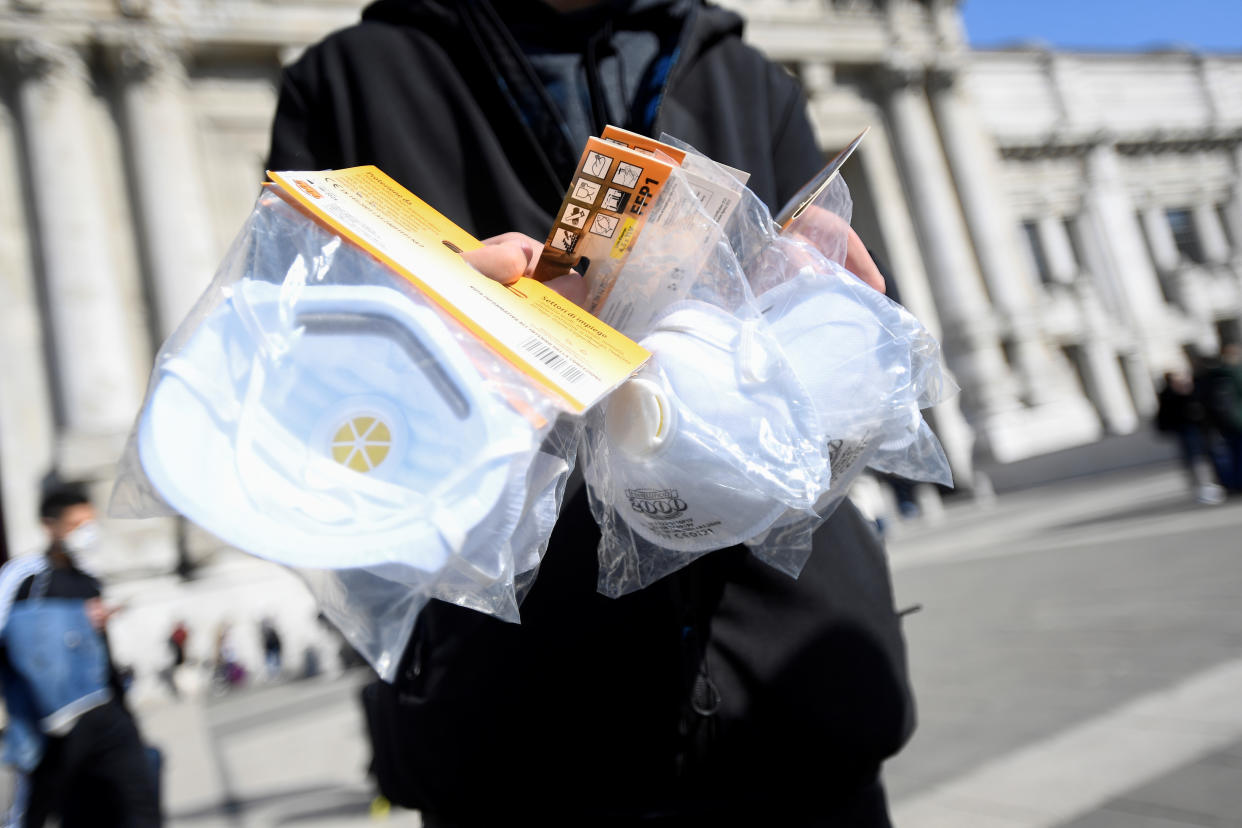Amazon pulls products that falsely claim to kill the coronavirus

Between warnings from the Centers for Disease Control and Prevention (CDC) that the global COVID-19 coronavirus has spread and will continue to in the U.S., and San Francisco calling a state of emergency to prepare for an outbreak, people appear to be on an endless search for preventative measures. And that's given rise to lots of false marketing claims — including, found CNBC, by third-party Amazon sellers that are advertising products claiming to “kill” the virus or which make similar “unapproved marketing claims.”
Because of that, reported CNBC, Amazon products related to the coronavirus, and related search terms, now trigger a redirect to the CDC, where legitimate information about the illness can be found.
Amazon did not immediately respond to Yahoo Lifestyle's requests for comment, but CNBC shared with its readers an email that Amazon is reportedly sending sellers.
“Hello from Amazon,
We are writing to let you know that the following detail pages have been removed from our catalog:
...
This product has been identified as a face mask or related product that makes unapproved medical marketing claims regarding coronavirus or the flu. Products that make medical marketing claims may not be legally marketed in the U.S. without prior review and approval by the Food & Drug Administration (FDA). Amazon policy prohibits the listing or sale of products that are marketed as unapproved or unregistered medical devices
We took this action because this product is not permitted for sale on Amazon.com. It is your obligation to make sure the products you offer comply with all applicable laws, regulations, and Amazon’s policies.”
The U.S. Food and Drug Administration (FDA) has also flagged coronavirus misinformation on a bigger scale. A Feb. 14 announcement read, “We have established a cross-agency task force dedicated to closely monitoring for fraudulent products and false product claims related to COVID-19 and we have already reached out to major retailers to ask for their help in monitoring their online marketplaces for fraudulent products with coronavirus and other pathogen claims. Products sold are subject to FDA investigation and potential enforcement action if they claim to prevent, treat, or cure COVID-19 and have not been evaluated by the agency for that intended use. The task force has already worked with retailers to remove more than a dozen of these types of product listings online. Several have already responded that they plan to monitor for coronavirus claims. The Agency is committed to taking action to prevent unscrupulous actors from marketing unlawful products related to this outbreak.”
Similarly, the non-profit Better Business Bureau (BBB) recently published a “Scam Alert,” about counterfeit health products. “Face masks may be the first phony product to crop up in the coronavirus outbreak, but it’s likely not the last,” warns the agency. “During the Ebola outbreak, the promotion of unapproved and fraudulent remedies was so prevalent that the US government advised consumers to steer clear of these drugs. It’s likely that scammers will use the coronavirus as another chance to market products falsely claiming to cure the disease.”
The BBB reminds consumers to make purchases from reputable and legitimate businesses, mentioning that lack of corporate contact information is a red flag and to consult with a doctor when considering medical devices or treatments. A BBB “Scam Tracker” allows people to report suspicious deals.
On Feb. 13, Amazon, along with Google, YouTube and other tech companies, attended a meeting hosted by the World Health Organization (WHO) at Google’s Menlo Park, Calif. campus, reported CNBC. The agenda included discussing ways to stop “misinformation” about the coronavirus. A representative of WHO did not return Yahoo Lifestyle’s request for comment, but one told CNBC that it offered fact-checking services to tech companies.
The CDC says that wearing a face mask is unnecessary to protect healthy people from COVID-19, only recommending them at a doctor’s discretion or for diagnosed people who show symptoms or those caring for infected patients, but Wired reports a mask shortage in some countries. Meanwhile, celebrities Kate Hudson and Gwyneth Paltrow are taking precaution with air travel, posting selfies while wearing masks.
According to Wired, face mask prices have risen with demand, prompting Amazon to flag companies about face masks “not in compliance” with “pricing policies.”
Read more from Yahoo Lifestyle:
Want daily pop culture news delivered to your inbox? Sign up here for Yahoo Entertainment & Lifestyle's newsletter.

